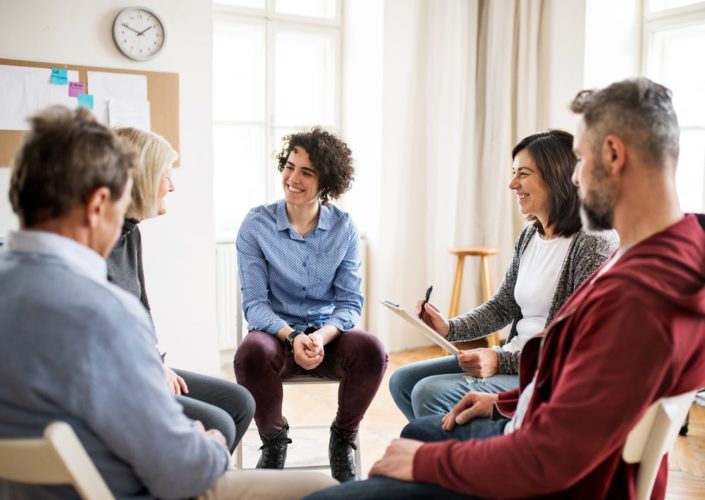
One of the biggest highlights of the holiday season is having all your loved ones around you. Many of these family gatherings involve laughter and joy, as well as plentiful food and decadent sweets. For someone with an eating disorder, these circumstances are difficult to face.
If your a friend or family member faces disordered eating habits, you want to be supportive. However, sometimes it’s hard to know how to help a loved one face an eating disorder. Keep these tips in mind to make holiday festivities a positive experience for loved ones in recovery.
Prepare non-food traditions
Most people look forward to certain foods around the holidays, but make sure there are other activities to participate in that do not involve food.
Try these creative holiday activities for family fun that everyone will enjoy:
- Play board games;
- Tell funny stories;
- Sing carols;
- Write cards to troops overseas;
- Make arts and crafts.
Highlighting the real reason for the season can help your loved one focus on meaningful aspects of the holidays rather than food.
Accommodate nutritional needs
Part of eating disorder recovery involves creating a meal plan to ensure proper nutrition. Your loved one may also have scheduled mealtimes that they need to stick to. Try to accommodate these nutritional needs by asking your loved one about their meal plan and what types of food they normally eat. Make an effort to serve some of their preferred options. Also be sure your loved one has access to these foods throughout the party so that they can eat on their own schedule.
Avoid comments about appearance
Knowing what not to say is important in family gatherings as well. A common thing for people to say when they have not seen each other in a while is how their looks have changed. Comments about appearance can be triggering to someone with an eating disorder, however — even statements that seem complimentary. For example, noting how much weight someone has lost can encourage the person to continue unhealthy behaviors in order to obtain validation. Or, it can bring feelings of shame.
Avoid commenting on appearance at all. Also refrain from invasive questions or making any sort of judgment that could induce shame, such as talking about the person’s romantic relationships or eating habits. Avoid dwelling on topics that could touch on their emotions and be upsetting, such as trauma or major life transition. In fact, it may be beneficial to make sure everyone is on board to avoid discussing sensitive topics with guests. This includes people talking about their own insecurities regarding food and weight.
Education is key. Learn about eating disorders, how they affect your loved one and how you can assist in their recovery.
Ask your loved one how to help
If you are unsure what will be helpful for your loved one’s particular situation, directly ask the person what they need. They can best tell you what is and is not effective. Speak in private to avoid embarrassing your loved one. Share that you want to be supportive and inclusive so they feel welcome and safe. When they see that you are invested in helping them cope with their eating disorder around the holidays, they may feel seen and known in a way that they have never experienced. Healing from an eating disorder takes a village, and you are a critical member of that community.
Show them compassion
Sometimes, the best thing you can to do for your loved one is to offer compassion. Although you cannot necessarily understand what they’re going through, you can let them know that you care. An individual struggling with an eating disorder may feel very isolated. Having someone to turn to can make all the difference.
Surviving the holidays with an eating disorder is difficult. Your loved one will need extra support to get through it. By considering their needs and offering compassion, you can help ease their struggle.
Even after the holidays are over, there are still challenges on the road to recovery for someone with an eating disorder. If you’re concerned about your loved one, consider referring them to Seeds of Hope. We offer both residential and outpatient eating disorder programs for adults and teens. We tailor a treatment plan to fit the individual’s needs. Contact us for more information, or call 610-644-6464.


